Although haricot verts sounds like a French product, many importers and traders prefer getting this green bean variety from Kenya. Kenya’s prices may be considerably higher than other countries of origin, but the African country has the edge when it comes to quality. In recent months, a lot less of these beans were available. Alternatives are, therefore, being sought, says Mitchell van der Geugten of Jami Trading. This Dutch company has haricot verts, peas, and sugar snap peas in its assortment throughout the year.
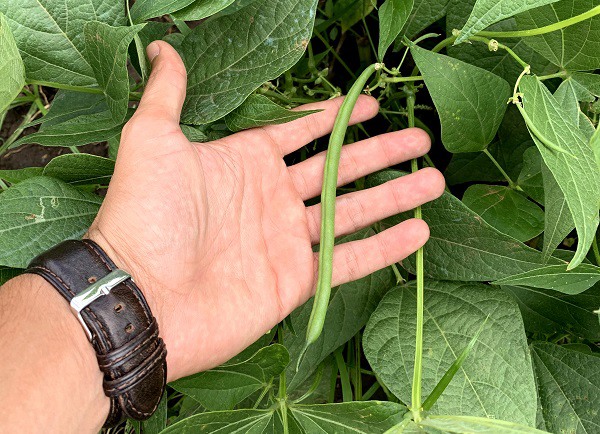
The months from October to December - in December, there is an extra high demand for haricot verts, due to the festive season - always prove to be challenging. “Last year, there was more rain than usual in Kenya during the rainy season, which had a significant impact on planting and cultivation. These low volumes mean prices shot up. Fortunately, during those months, we found several good suppliers in Guatemala and Egypt. We work with a grower in Rwanda too,” says Mitchell.
Compared to the price of the Kenyan product, prices from other countries are far more favorable. According to the importer, farmers in especially Egypt have been able to benefit from this. “Egypt comes with prices Kenyan can absolutely not match. However, you hear from people on the market that the quality is not as good. Prices for produce from Guatemala are also more favorable. They have the advantage that these beans can be transported by ship. The Kenyan product is flown in. That is more expensive, but it is also faster.”
There is a considerable price difference to the Kenyan product, but these new countries still have to catch up with regard to quality. Mitchell says, “In Egypt, they have able to make good money recently. However, to maintain this in the long term, they will need to professionalize their cultivation. That has happened in Kenya already. The Kenyan product is the best in terms of cost-effectiveness. Most clients prefer these.”
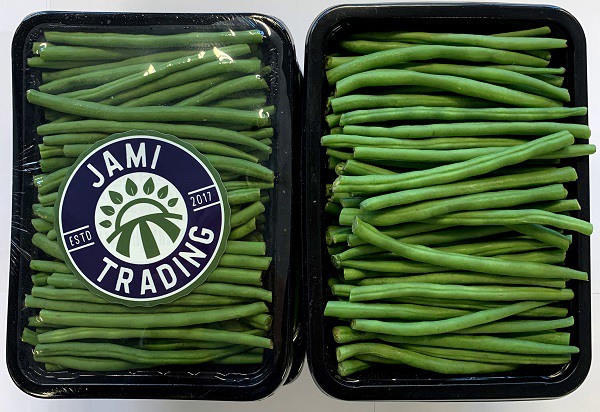
Jami Trading is based at Schiphol Airport in the Netherlands. They supply these Kenyan vegetables from their warehouse to the client. This is done according to the principle of the ‘fresh to door delivery’. “We are a subsidiary of Fairways Logistics. Whether it is about a little box that has to go to the center of Amsterdam or 1,000kg of haricot verts that need to be sent to a warehouse - Fairways handles the transport and logistics from start to finish for us."
"We have an office in Nairobi, where we contact suppliers and processors several times a day. The advantage of that is that - certainly in the months when the product’s quality is poorer - we have 100% control over the shipment. At Nairobi airport, our team does a final check. If the quality is sub-standard, we can, therefore, decide there and then to cancel the shipment. We realize it is not ideal for the client, but we would rather not send anything we know the client will not approve of.”
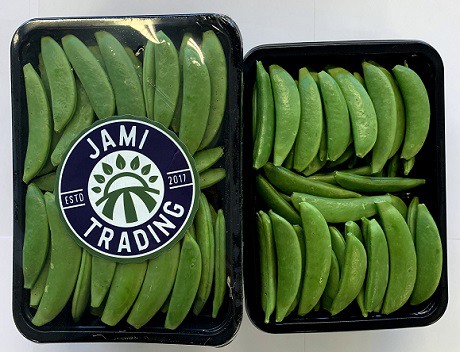
Jami aims to limit the transit time between harvesting and delivering the product to three days. The temperature at which these vegetables are transported is an important factor. “Especially in the rainy season, when the beans are wet, there are very little temperature variations. We want to prevent ‘sweating’, so the temperature cannot go too high. If it does, brown spots appear more quickly on the product, which is not good for its shelf life,” says Mitchell. Over the last two years, Jami Trading has been supplying its clients to order.
That will change on 1 April when the business moves to its new premises at Schiphol, where they will have access to refrigeration and freezer space. “We noticed that, besides orders, we often get requests for urgent daily trade. We can offer that from our new location. We are becoming increasingly well-known. In the Netherlands, we are getting more and more clients and now also supply a few Belgian wholesalers. Depending on what happens with Brexit, an expansion to the United Kingdom is also on the cards.”
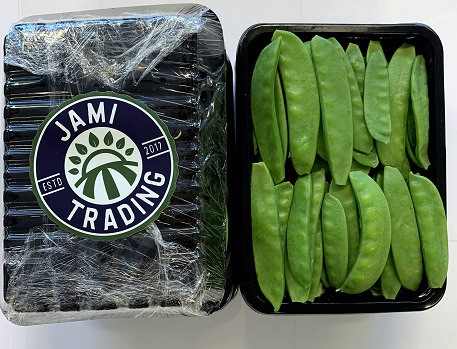
Jami’s main product is haricot verts. Peas and sugar snaps peas also do well as secondary products. “We have added purple passionfruit and baby corn to our range too. We will begin to offer frozen avocado products from our new site as well. If kept at below -20°C, avocado products retain all their beneficial properties. A defrosted avocado product is a good alternative for fresh avocados. These can make up for shortages on the market. We are very excited about this,” concludes Mitchell.
Voor meer informatie: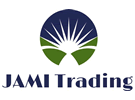 Mitchell van der Geugten
Mitchell van der Geugten
Jami Trading
+31655101683
Mitch@jami-trading.com
www.jami-trading.com
